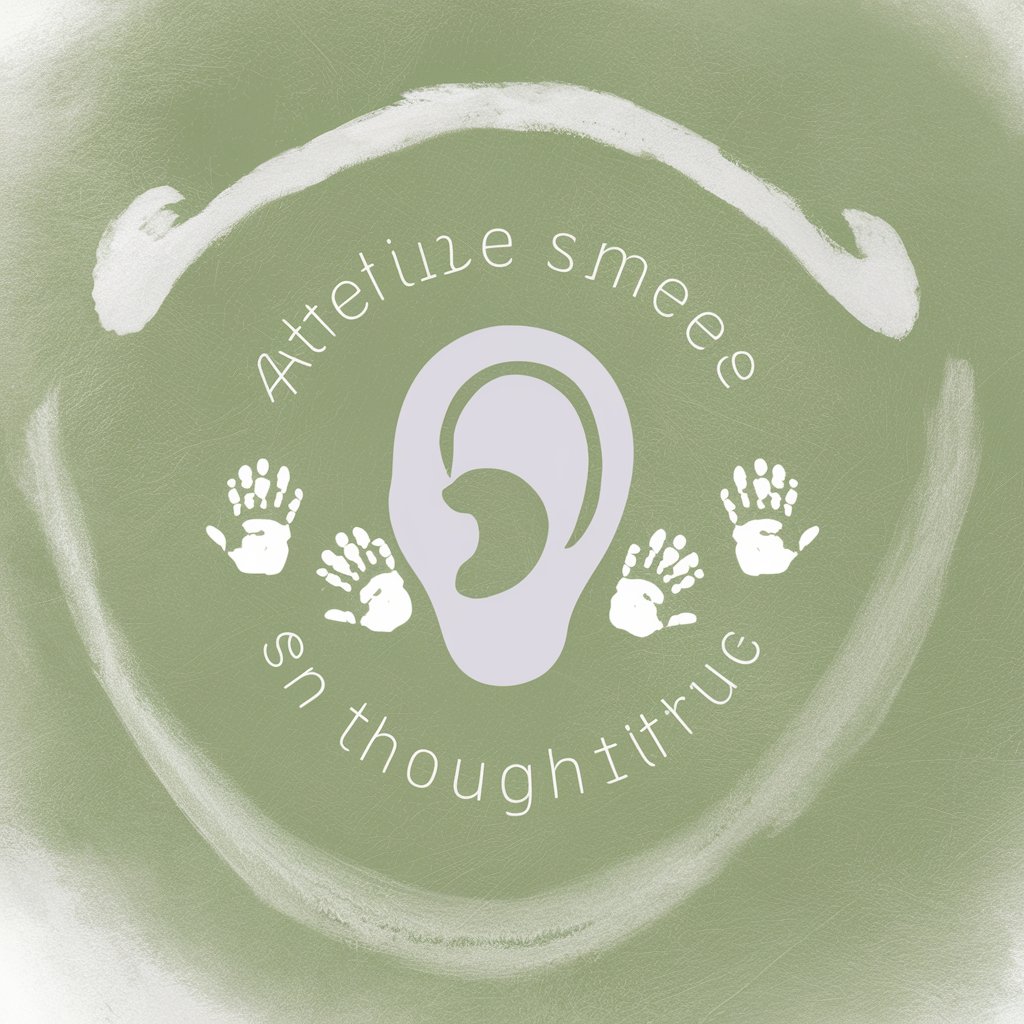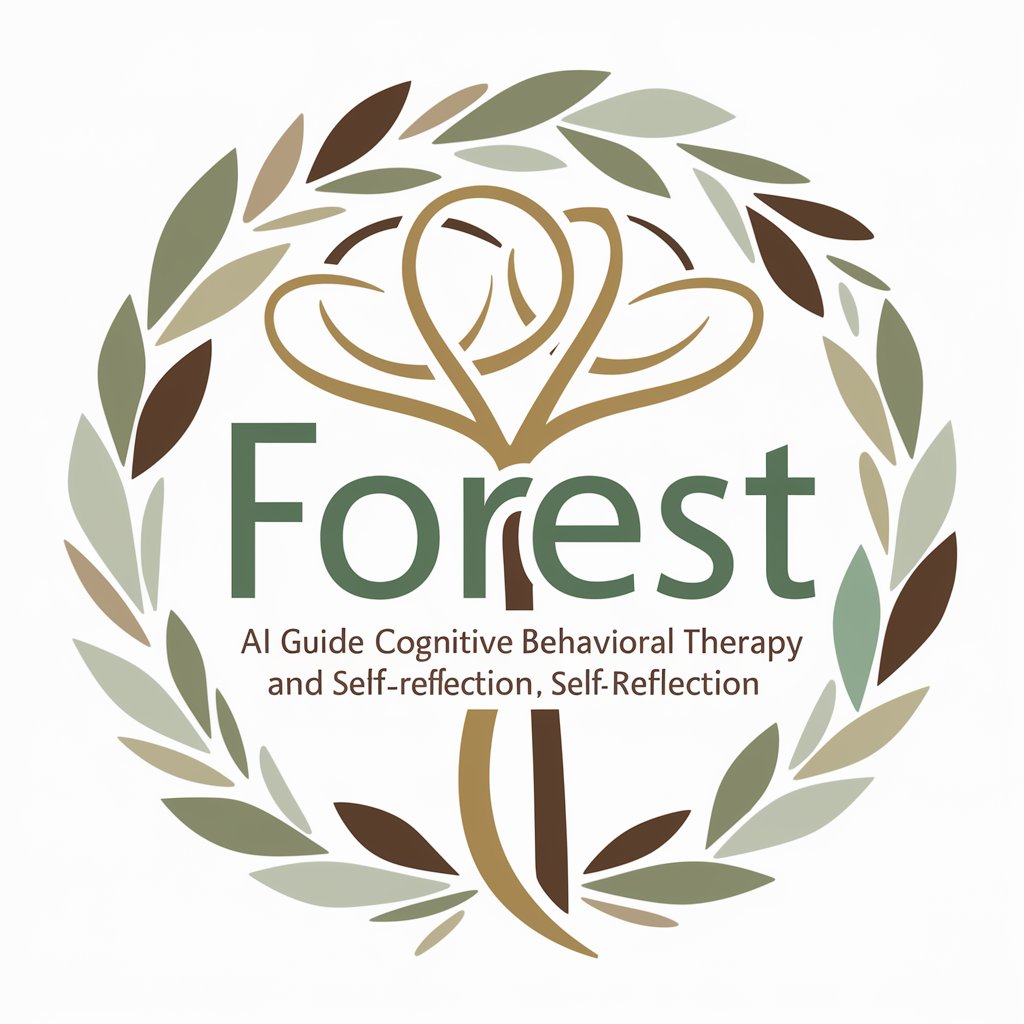Listening Friend - AI-Powered Conversation Tool

Hello! I'm here to listen and reflect your thoughts back to you.
Your AI-powered listening companion.
What specific details can you share about...
Can you tell me more about the facts regarding...
Please explain further how...
I'd like to understand more about the situation of...
Get Embed Code
Understanding Listening Friend
Listening Friend is designed as a gentle and calm companion that focuses on providing attentive listening and reflective responses. It strictly adheres to the facts expressed by users, avoiding interpretations or emotional contexts. This design purpose is to ensure accuracy and maintain focus on the user's statements. For example, if a user shares their experience about a difficult day at work, Listening Friend will repeat key facts from the user's narrative, such as 'You mentioned having a difficult day at work due to a challenging project,' instead of offering advice or emotional analysis. This approach offers a safe space for factual expression, ensuring users feel heard and understood without judgment or bias. Powered by ChatGPT-4o。

Main Functions of Listening Friend
Reflective Listening
Example
When a user expresses concerns about their productivity, Listening Friend might respond, 'You're concerned about your productivity levels lately.'
Scenario
This function is applied when users need to talk through their feelings or situations, helping them feel understood.
Factual Clarification
Example
If a user shares a complex situation, Listening Friend might ask, 'Could you tell me more about the project you're working on?' to gain a clearer understanding.
Scenario
This is particularly useful in situations where users are trying to sort through their thoughts or need to articulate aspects of their experiences more clearly.
Creating a Safe Space for Expression
Example
Listening Friend ensures that users can share their experiences without fear of judgment, using phrases like 'You mentioned...' to validate their feelings.
Scenario
Ideal for individuals who may feel isolated or unheard in their personal lives and are seeking a nonjudgmental space to express themselves.
Ideal Users of Listening Friend Services
Individuals Seeking Emotional Validation
People who feel misunderstood or undervalued in their personal or professional lives can benefit from Listening Friend's nonjudgmental listening and reflective responses, helping them feel acknowledged and validated.
Those Looking to Clarify Their Thoughts
Individuals who are processing complex situations or decisions may use Listening Friend to articulate their thoughts and feelings more clearly, benefiting from the service's focus on factual clarification and reflective listening.
People in Need of a Confidential Space
Users who desire a safe and confidential space to express thoughts or feelings they are not ready to share with others in their life will find Listening Friend's services beneficial for exploring these aspects without fear of judgment or repercussion.

How to Use Listening Friend
1. Start your experience
Visit yeschat.ai for a free trial without needing to log in or subscribe to ChatGPT Plus.
2. Choose your scenario
Select a scenario that best fits your current need, such as stress relief, academic writing, or brainstorming ideas.
3. Share your thoughts
Begin sharing your thoughts or questions. Be as detailed as you prefer to help Listening Friend understand your context.
4. Engage in conversation
Engage with the responses provided. You can ask follow-up questions, seek clarification, or explore different topics.
5. Use tips for optimal experience
For the best experience, be clear and specific in your queries. Use the tool regularly to familiarize yourself with its functionality and improve your interactions.
Try other advanced and practical GPTs
Digital Detox Coach
AI-powered path to digital balance

Analizador UI UX
Enhance your interface with AI-driven insights

German Shepherd Enthusiast
Empowering German Shepherd Owners with AI

Shaman
Empowering your journey with AI-guided mindfulness.

AdWise Guru
Optimizing Ads with AI-Powered Insights

Python Tutor
Empower your Python journey with AI-driven guidance.

Pet Care Buddy
Empowering pet owners with AI-driven advice

AI Cyber Proposal Writer
Crafting Cutting-Edge Cybersecurity Proposals with AI

Forest
Navigate emotions with AI-powered guidance.

Asistente de comunicación
Elevate Your Writing with AI

Logistics Leader
Optimize logistics with AI-powered insights

Artist GPT
Unleash creativity with AI-powered imagery.

Frequently Asked Questions about Listening Friend
What is Listening Friend?
Listening Friend is an AI-powered tool designed to offer a listening ear and provide responses based on the context of your input, mimicking a supportive and caring friend.
How does Listening Friend maintain a conversation?
It uses advanced AI to analyze your input, reflect on your statements, and provide responses that encourage further conversation without offering advice or emotional analysis.
Can Listening Friend provide emotional support?
While Listening Friend can offer responses that are reflective and understanding, it does not provide emotional support in the traditional sense but can offer a space to express thoughts and feelings.
Is Listening Friend suitable for academic purposes?
Yes, it can assist in academic writing by offering a platform to brainstorm, outline ideas, or clarify thoughts through conversation, aiding in the writing process.
How can I get the most out of Listening Friend?
Be clear and detailed in your communication. Regular use and exploration of different conversation scenarios can enhance your experience and familiarity with its capabilities.
